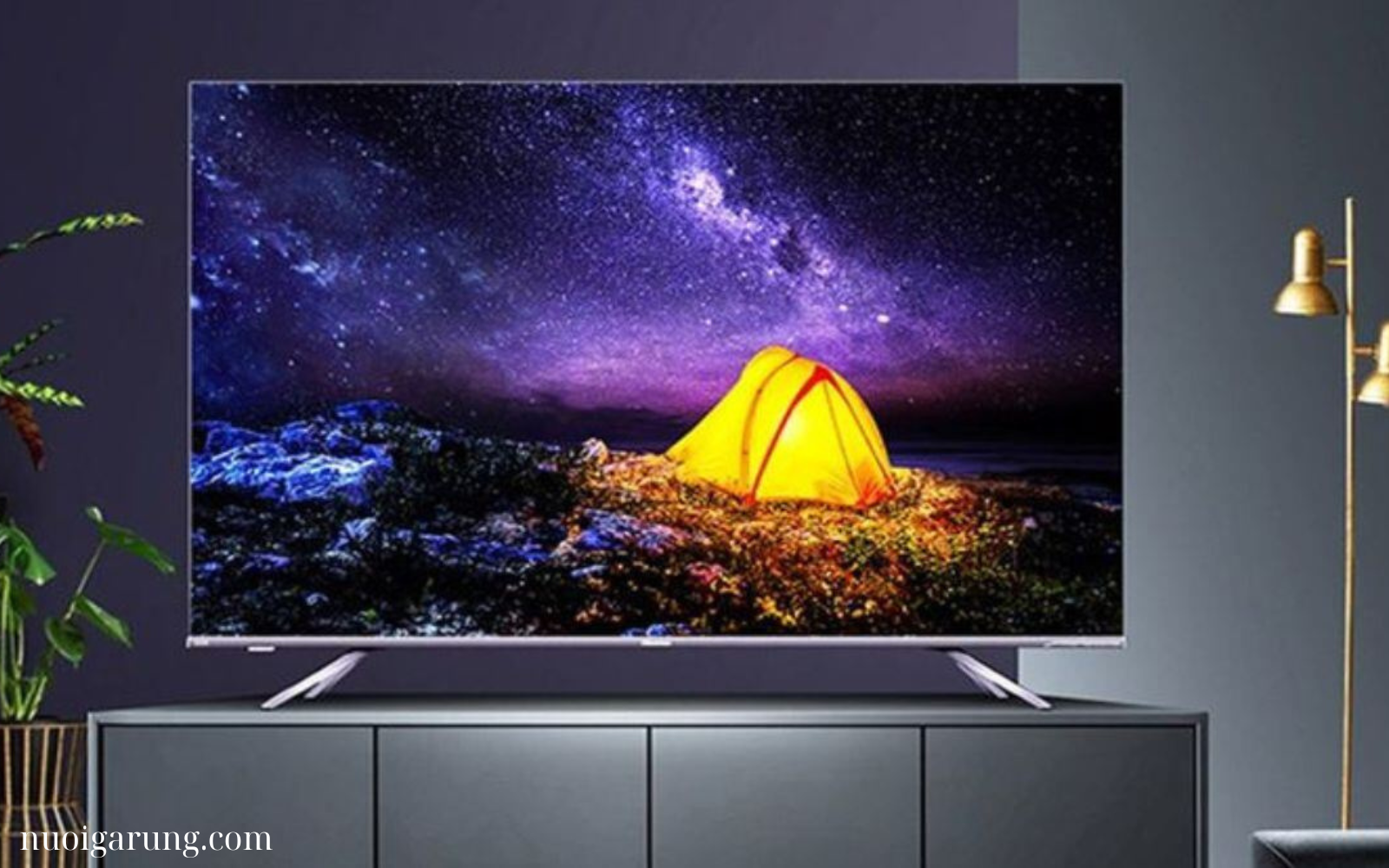In the realm of home entertainment, a 4K Ultra HD TV represents the pinnacle of visual technology, offering unparalleled picture quality and resolution that transform the viewing experience. With advancements in display technology and content delivery, 4K Ultra HD TVs have become a preferred choice for discerning viewers who seek a superior level of clarity, detail, and color accuracy. This comprehensive overview explores the key features, benefits, and considerations of 4K Ultra HD TVs, highlighting why they are a game-changer in modern home entertainment.
What is 4K Ultra HD?
1. Definition and Resolution
- 4K Resolution: 4K Ultra HD, commonly referred to as 4K, has a resolution of 3840 x 2160 pixels, which is four times the resolution of Full HD (1920 x 1080 pixels). This increased pixel count results in a higher level of detail and sharpness, providing a more immersive viewing experience.
- Ultra HD Standard: The term “Ultra HD” encompasses not only 4K resolution but also enhanced color depth and contrast. This standard ensures that viewers enjoy a more vibrant and lifelike image, with greater depth and realism.
Key Features of 4K Ultra HD TVs
1. Exceptional Picture Quality
- High Pixel Density: The high pixel density of 4K Ultra HD TVs allows for finer details and sharper images, making it ideal for large screens and close viewing distances. Whether watching movies, sports, or playing video games, the clarity and detail enhance the overall visual experience.
- Enhanced Color Accuracy: 4K TVs often come with advanced color technology, such as High Dynamic Range (HDR), which improves color accuracy and contrast. HDR provides brighter highlights, deeper blacks, and a wider range of colors, contributing to a more dynamic and realistic picture.
2. Advanced Display Technology
- OLED and QLED Panels: Many 4K Ultra HD TVs utilize OLED (Organic Light Emitting Diode) or QLED (Quantum Dot Light Emitting Diode) technology. OLED panels offer exceptional contrast ratios and deep blacks due to their ability to individually light each pixel. QLED panels, on the other hand, enhance color vibrancy and brightness through quantum dot technology.
- Wide Viewing Angles: Some 4K TVs are designed with wide viewing angle technology, ensuring consistent picture quality from various seating positions. This feature is particularly beneficial for larger rooms or group viewings.
3. Smart TV Capabilities
- Integrated Streaming Services: Modern 4K Ultra HD TVs come with built-in smart features that provide access to popular streaming services such as Netflix, Amazon Prime Video, and Disney+. The seamless integration allows users to stream 4K content directly from their TV without the need for additional devices.
- Voice Control and Assistants: Many 4K TVs support voice control through virtual assistants like Amazon Alexa, Google Assistant, or Apple Siri. This functionality enables users to search for content, adjust settings, and control other smart devices using voice commands.
4. Connectivity and Compatibility
- Multiple HDMI Ports: 4K Ultra HD TVs typically feature multiple HDMI ports, allowing for the connection of various devices such as Blu-ray players, gaming consoles, and soundbars. HDMI 2.1 ports offer support for higher refresh rates and advanced features like variable refresh rate (VRR) and auto low latency mode (ALLM).
- 4K Upscaling: Many 4K TVs include upscaling technology that enhances the resolution of lower-quality content to near 4K quality. This feature ensures that non-4K sources still benefit from improved clarity and detail.
Benefits of 4K Ultra HD TVs
1. Superior Viewing Experience
- Enhanced Detail and Sharpness: The increased resolution of 4K TVs provides a more detailed and sharp image, making it easier to see fine details in scenes and textures. This enhanced clarity is especially noticeable in high-definition content and large-screen TVs.
- Immersive Entertainment: The combination of high resolution, advanced color technology, and wide viewing angles creates an immersive viewing experience. Whether watching a nature documentary or a blockbuster film, the visual impact is profound.
2. Future-Proof Investment
- Growing 4K Content: As streaming services and content providers increasingly offer 4K content, owning a 4K Ultra HD TV ensures that you are prepared to enjoy the latest high-definition media. This investment helps future-proof your home entertainment setup against evolving technology standards.
3. Enhanced Gaming and Sports Viewing
- Crisp Graphics and Smooth Motion: For gamers and sports enthusiasts, 4K TVs offer crisp graphics and smooth motion handling, enhancing the enjoyment of fast-paced action and detailed game environments. The high refresh rates and low latency support deliver a responsive gaming experience.
Considerations When Choosing a 4K Ultra HD TV
1. Screen Size and Viewing Distance
- Optimal Size: The benefits of 4K resolution are most apparent on larger screens. When selecting a TV, consider the size of the screen relative to your viewing distance to ensure that you maximize the visual advantages of 4K.
2. Content Availability
- 4K Content: Ensure that there is sufficient 4K content available through streaming services, Blu-ray discs, or other sources to fully utilize the capabilities of your 4K TV. As content libraries expand, having a 4K TV will enhance your viewing options.
3. Budget and Features
- Price Range: 4K Ultra HD TVs are available across a range of price points, from entry-level models to high-end options with advanced features. Determine your budget and desired features, such as OLED or QLED panels, smart capabilities, and connectivity options, to find the best TV for your needs.
Conclusion
A 4K Ultra HD TV offers a remarkable upgrade to your home entertainment system, delivering exceptional picture quality, vibrant colors, and an immersive viewing experience. With advancements in display technology and smart features, 4K TVs cater to a wide range of preferences and requirements, ensuring that you enjoy superior performance and value. Whether for watching movies, playing games, or streaming content, a 4K Ultra HD TV represents a significant enhancement in visual technology, providing a clear and detailed view that brings your favorite content to life.
FAQ
What is the difference between 4K and Ultra HD? 4K and Ultra HD (UHD) are terms often used interchangeably, but technically, Ultra HD refers to a resolution of 3840 x 2160 pixels, which is the same as 4K. 4K generally refers to a resolution of 4096 x 2160 pixels used in digital cinema, while UHD is the standard for consumer TVs.
Do I need a 4K TV for streaming services? While not strictly necessary, a 4K TV enhances your viewing experience if you have access to 4K content from streaming services like Netflix, Amazon Prime Video, and Disney+. A 4K TV provides better picture quality and detail for available 4K content.
Are 4K TVs compatible with older devices? Yes, 4K TVs are compatible with older devices through HDMI ports. Many 4K TVs include upscaling technology that improves the resolution of lower-quality content to near 4K quality, ensuring that older devices can still benefit from enhanced picture quality.
What factors should I consider when buying a 4K TV? When purchasing a 4K TV, consider factors such as screen size, viewing distance, available content, budget, and desired features (e.g., OLED vs. QLED, smart capabilities, and connectivity options). Choosing a TV that fits your needs and preferences will maximize your viewing experience.



